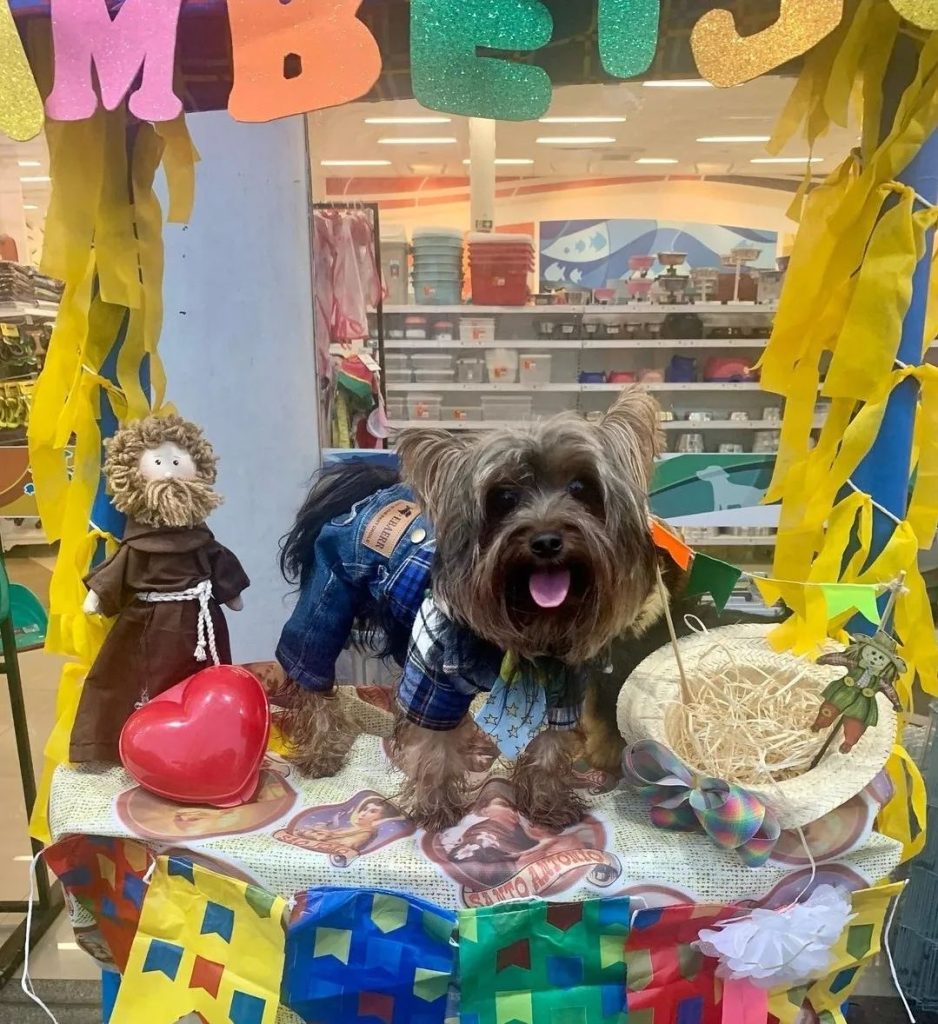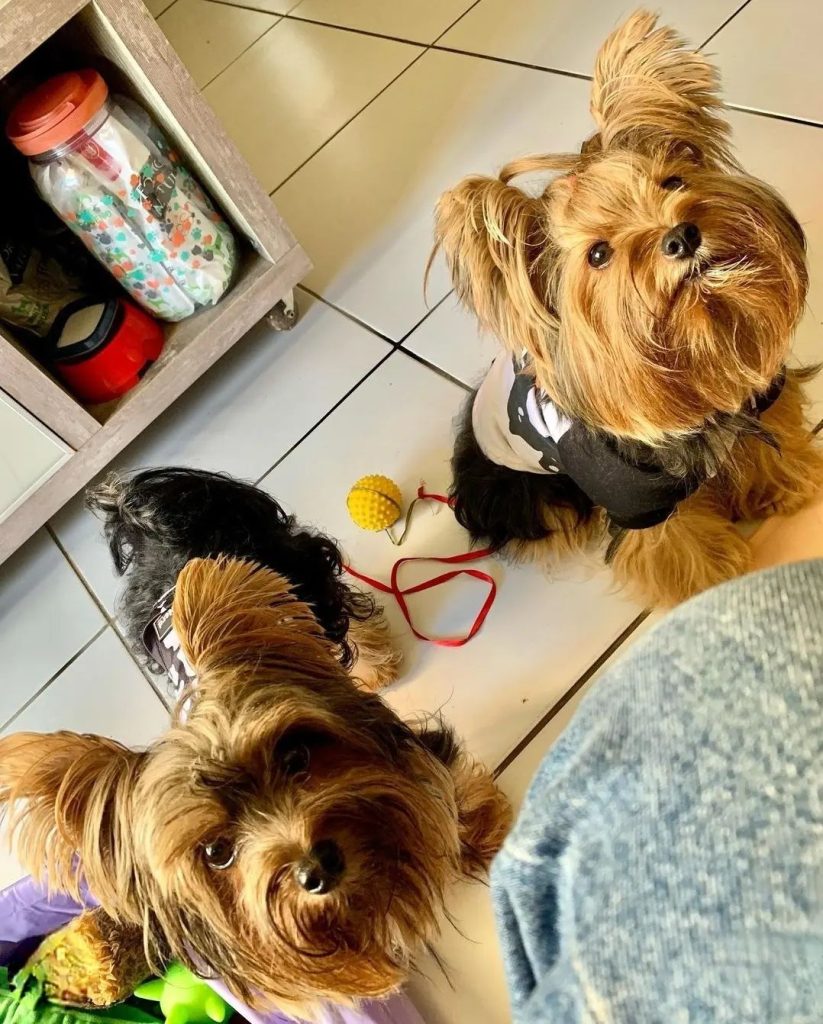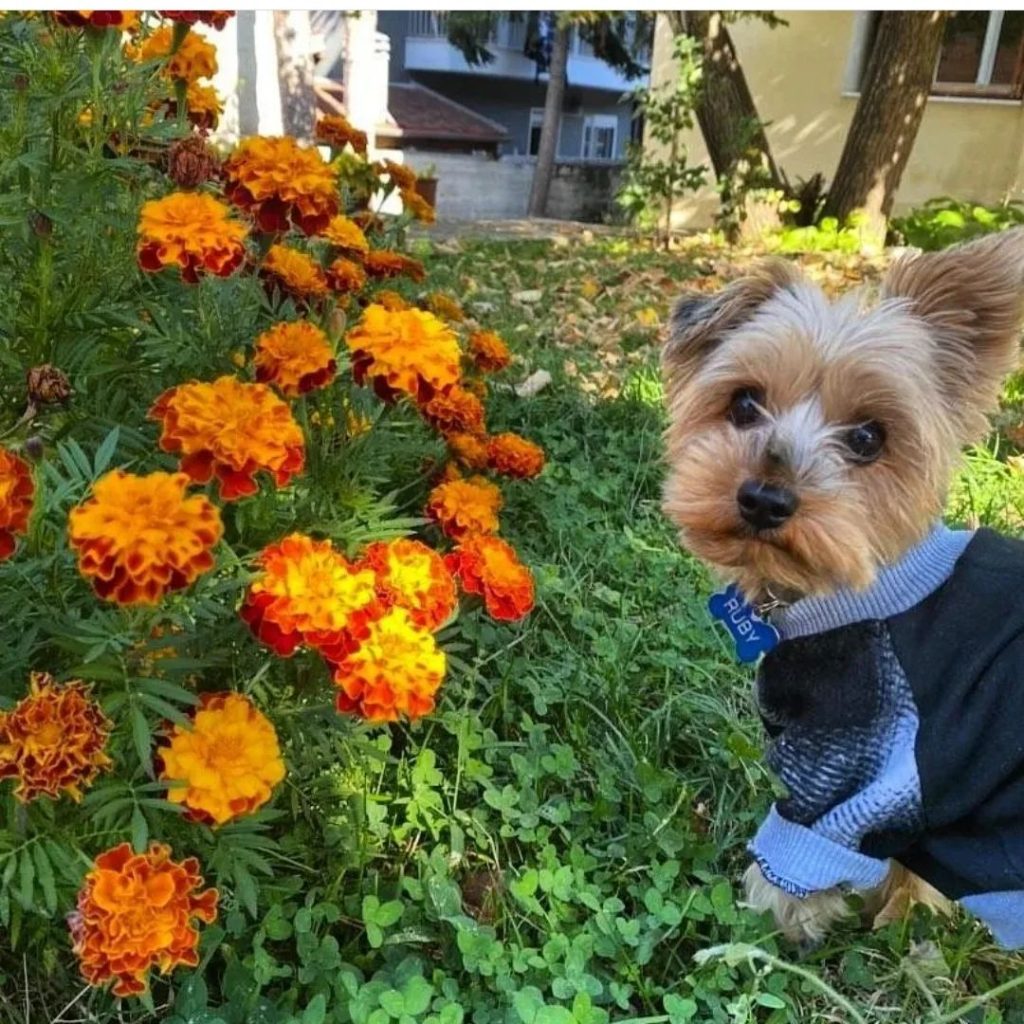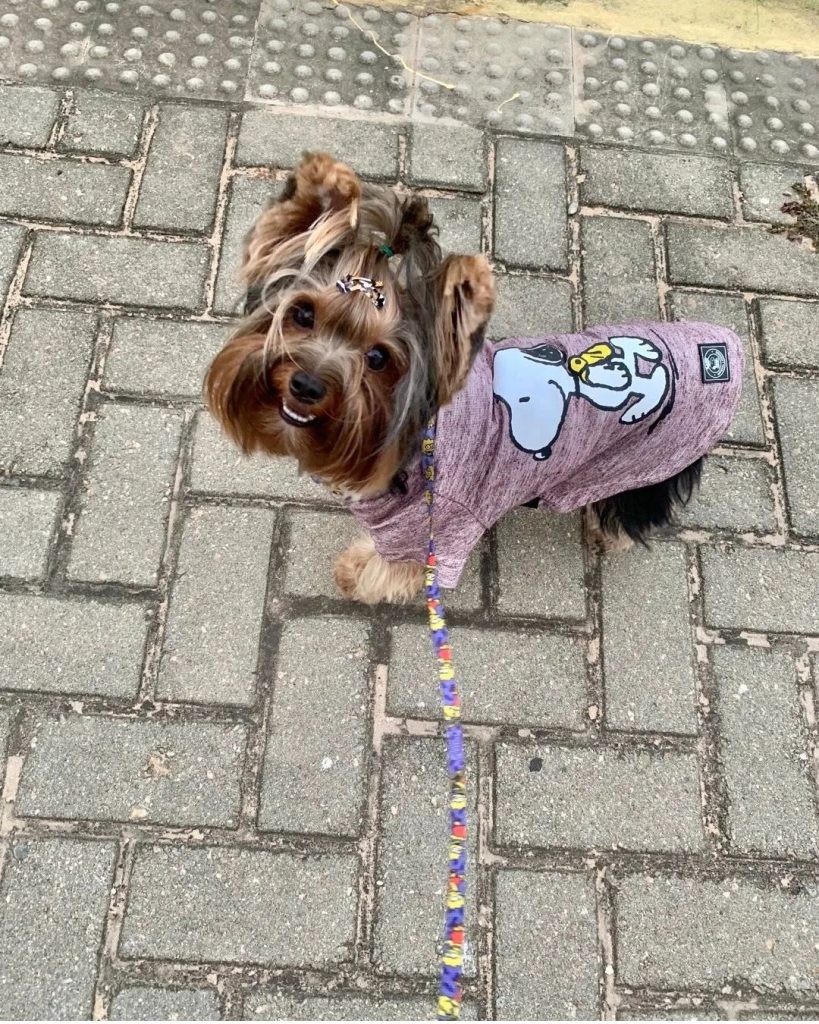Training a Yorkshire Terrier, commonly known as a Yorkie, can be a rewarding experience for both the pet and the owner. These small, energetic dogs are known for their intelligence, loyalty, and vibrant personality. However, their spirited nature can sometimes make training a challenge. In this section, we will introduce the fundamental aspects of Yorkie training, focusing on understanding their behavior and the challenges that may arise during the training process.

Understanding Yorkshire Terrier Behavior
Yorkshire Terriers are a breed that thrives on attention and affection from their owners. They are highly intelligent and have a keen ability to understand commands, but they also have a strong-willed nature. Yorkies are known for their curiosity and love of adventure, which can sometimes lead to mischief if not properly guided. Understanding these aspects of Yorkie behavior is crucial in effectively training them, as it allows owners to tailor their training methods to suit the unique personality of their pet.
The Challenges of Training Yorkies
Training a Yorkie can come with its own set of challenges. Their small size and energetic disposition can sometimes lead to them being underestimated in terms of their training needs. Additionally, Yorkies can develop a ‘small dog syndrome,’ where they exhibit behaviors like stubbornness and dominance if not properly trained and socialized. This can make training tasks such as housebreaking and obedience more challenging. However, with patience, consistency, and the right approach, these challenges can be overcome, leading to a well-behaved and happy Yorkie.
Understanding Yorkie behavior and acknowledging the challenges faced during training are crucial first steps in the journey of training your Yorkie. As we move forward, we will delve into the foundational steps in Yorkie training, offering insights and practical advice on how to effectively train your beloved pet.
Foundational Steps in Yorkie Training
Embarking on the journey to train a Yorkshire Terrier (Yorkie) requires understanding the foundational steps that set the stage for a successful training experience. This section focuses on the crucial early steps in Yorkie training, emphasizing learning from experienced trainers, the importance of positive reinforcement, and effective puppy training techniques. These foundational steps are essential in creating a conducive learning environment for your Yorkie, ensuring that the training process is as smooth and effective as possible.
Learn From Experienced Trainers: Best Practices
When beginning the process of how to train a Yorkshire Terrier, it’s invaluable to seek insights from experienced trainers. These professionals can offer Yorkshire Terrier training tips that are especially tailored to the breed’s unique characteristics. Here are some best practices recommended by experts:
- Start Early: Begin training your Yorkie at a young age to instill good habits and behavior from the start.
- Consistency is Key: Maintain consistent commands, rules, and routines to avoid confusing your Yorkie.
- Short and Engaging Sessions: Keep training sessions short and engaging to hold your Yorkie’s attention and make learning enjoyable.
- Socialization: Expose your Yorkie to different people, animals, and environments early on to foster adaptability and reduce anxiety.
- Health Check: Ensure your Yorkie is in good health before starting any training regimen, as health issues can affect their ability to learn and respond.
Adhering to these best practices from the onset can greatly enhance the training experience, making it more enjoyable and effective for both you and your Yorkie.
The Art of Positive Reinforcement
The Yorkshire Terrier training guide often emphasizes the importance of positive reinforcement. This training method involves rewarding desirable behaviors with treats, praise, or playtime, which encourages the Yorkie to repeat those behaviors. Positive reinforcement is not only effective but also strengthens the bond between you and your Yorkie, fostering a positive learning environment. This approach contrasts with punitive measures, which can lead to fear and mistrust, hindering the training process.

Yorkie Puppy Training Techniques
Training a Yorkie puppy involves a blend of patience, consistency, and understanding of the breed’s characteristics. Here are some effective techniques:
- Crate Training: Utilize a crate to create a safe space for your Yorkie and aid in house training.
- Bite Inhibition: Teach your Yorkie puppy to control the force of their bite through playful interactions and corrections.
- Leash Training: Acclimate your Yorkie to a leash early on to ensure comfortable and safe walks.
- Command Training: Start with basic commands like “sit,” “stay,” and “come,” using positive reinforcement to encourage compliance.
- Potty Training: Establish a regular potty schedule and designated area, rewarding successful outings to reinforce the behavior.
By incorporating these foundational steps into your training regimen, you can lay a solid groundwork for your Yorkie’s education, making subsequent training stages more manageable and rewarding.
Yorkie Training: From Puppies to Adults
Training a Yorkshire Terrier is an evolving process that adapts as your Yorkie grows from a playful puppy into a mature adult. This section highlights the importance of a structured training timeline through the first year, outlining key milestones and how training should adjust as your Yorkie ages. Understanding these stages is crucial for training a Yorkshire Terrier effectively, ensuring that your Yorkie develops into a well-behaved companion.
Yorkie’s First Year: Training Timeline
The first year of a Yorkie’s life is filled with rapid growth and learning opportunities. It’s a critical period for setting the foundation for good behavior and obedience. Below is a timeline of key training milestones to aim for, from puppyhood to adulthood.
Key Milestones, Weeks 1-12
- Socialization: Introduce your Yorkie to a variety of people, pets, and environments to encourage a well-adjusted temperament.
- Basic Commands: Start with simple Yorkshire Terrier training commands like “sit,” “stay,” and “come.” Use positive reinforcement to encourage these behaviors.
- House Training: Begin the process of house training, establishing a consistent routine and designated potty area.
- Crate Training: Introduce your Yorkie to a crate to provide a sense of security and aid in house training.
Key Milestones, Weeks 16-20
- Leash Training: Teach your Yorkie to walk calmly on a leash, reinforcing positive behavior with treats and praise.
- Continued Socialization: Keep exposing your Yorkie to new experiences to build confidence and reduce fearfulness.
- Advanced Commands: Gradually introduce more complex commands and tricks, using positive reinforcement to encourage learning.
Key Milestones, 6 Months and Beyond
- Obedience Training: Reinforce learned commands and introduce new challenges to keep training engaging.
- Behavioral Training: Address any emerging behavioral issues with consistent correction and positive reinforcement.
- Routine Establishment: Ensure that your Yorkie has a stable and predictable routine, including regular exercise, feeding, and training sessions.

Adjusting Training as Your Yorkie Ages
As your Yorkie transitions from puppyhood to adulthood, it’s important to adjust your training approach to match their developmental stage. Older Yorkies might require more mental stimulation and advanced training to keep them engaged. Here are some tips for adapting your training:
- Complex Commands: Introduce more complex commands and tricks to challenge your Yorkie’s mind and reinforce obedience.
- Consistency: Maintain consistency in commands, rewards, and discipline to ensure your Yorkie understands expectations.
- Regular Reinforcement: Regularly reinforce training to prevent regression in behavior, even as your Yorkie becomes an adult.
- Adaptability: Be prepared to adapt your training techniques as your Yorkie’s personality and preferences become more defined.
Specialized Training Areas
Training Yorkshire Terrier dogs goes beyond basic obedience and encompasses specialized areas essential for their development and well-being. This section delves into crucial aspects such as house training, obedience, socialization, and an in-depth look at potty training. By focusing on these areas, owners can address the specific needs of their Yorkies, ensuring a well-rounded and disciplined pet. This Yorkshire Terrier puppy training guide aims to provide targeted strategies for these specialized training areas.
House Training a Yorkie Puppy
House training is often the first and most important training task for any new puppy owner. For Yorkies, this process requires patience, consistency, and a clear routine. Here are some key steps to successfully house train your Yorkie puppy:
- Establish a Routine: Regular feeding times lead to predictable potty times. Take your Yorkie out first thing in the morning, after meals, and before bedtime.
- Choose a Designated Potty Area: Consistently taking your Yorkie to the same spot will help them associate that area with going potty.
- Use Positive Reinforcement: Reward your Yorkie with treats and praise immediately after they’ve done their business in the correct spot.
- Supervise Indoors: Keep an eye on your Yorkie while inside to prevent accidents. Use crate training as a tool when you can’t provide direct supervision.
- Patience is Key: Remember, accidents will happen. It’s important to stay patient and avoid punishment, as it can lead to fear and anxiety.

Yorkie Obedience Training
- Start with Basic Commands: Teach commands like “sit,” “stay,” “come,” and “down.” Use clear, consistent commands and reward successful responses.
- Short, Positive Sessions: Keep training sessions short and positive to maintain your Yorkie’s attention and enthusiasm.
- Progress to More Advanced Training: As your Yorkie masters the basics, gradually introduce more complex commands and tricks to challenge them and keep training engaging.
Socializing Your Yorkie Puppy
Socialization is vital for developing a well-rounded, confident Yorkie that is comfortable in various situations. Effective socialization involves:
- Exposure to Various Environments: Bring your Yorkie to different places like parks, pet stores, and outdoor cafes to expose them to various sights, sounds, and smells.
- Meeting New People and Pets: Allow your Yorkie to meet a wide range of people and friendly pets to build their social skills and reduce fearfulness.
- Positive Associations: Pair new experiences with positive outcomes, like treats and praise, to build a positive association with socialization.
A Deeper Dive into Yorkie Potty Training
Potty training is a common challenge for Yorkie owners, but with the right approach, it can be managed effectively:
- Consistency and Routine: Adhering to a strict feeding and potty schedule helps your Yorkie learn when and where it’s appropriate to go.
- Crate Training: A crate can be a valuable tool in potty training, as dogs naturally avoid soiling their sleeping area.
- Recognize Potty Signals: Learn to recognize your Yorkie’s signs that they need to go, such as sniffing, circling, or whining, and respond promptly.
By focusing on these specialized training areas, you can address the unique challenges of training Yorkshire Terrier dogs, ensuring a well-behaved, happy, and healthy companion.
Overcoming Training Challenges
Training a Yorkshire Terrier, like any breed, comes with its set of challenges, but with the right strategies, these can be effectively managed and overcome. Understanding and navigating these challenges are crucial steps in ensuring a successful training process.
Navigating Yorkie Training Challenges
Yorkies, with their spirited and sometimes stubborn nature, can present unique training challenges. They may become easily distracted, or resist commands if they find something more interesting. Overcoming these challenges requires patience and creativity in training methods. By making sessions short, engaging, and varied, you can keep their attention focused on the tasks at hand. Consistency in commands and expectations, coupled with positive reinforcement, can also significantly mitigate these issues.
The Importance of Play in Training
Incorporating play into training sessions is not just beneficial; it’s essential for breeds like Yorkies who thrive on interaction and engagement. Play can make learning more enjoyable, helping Yorkies to associate training with positive experiences. This approach not only enhances their learning but also strengthens the bond between you and your pet.
Making Training Fun: A Yorkie Training Checklist
Creating a fun and dynamic training routine involves integrating games, rewards, and positive reinforcement. For instance, using their favorite toys as a part of obedience training or turning recall exercises into a game can make training something your Yorkie looks forward to. By consistently making training sessions enjoyable and rewarding, you’re more likely to see progress and less likely to encounter resistance, leading to a more harmonious and effective training experience.

The Role of Technology in Training
Technology has revolutionized the way we train our pets, offering innovative tools and resources to enhance the training process. From interactive apps that gamify training exercises to online platforms offering expert guidance and communities for support, technology provides a wealth of opportunities to make training more effective and accessible.
Conclusion: Mastering Yorkie Training
Mastering Yorkie training requires patience, consistency, and a deep understanding of their unique personality traits. By embracing a comprehensive approach that includes foundational training, specialized areas, and the integration of technology, you can navigate the challenges and enjoy a rewarding journey with your well-trained Yorkshire Terrier companion.
